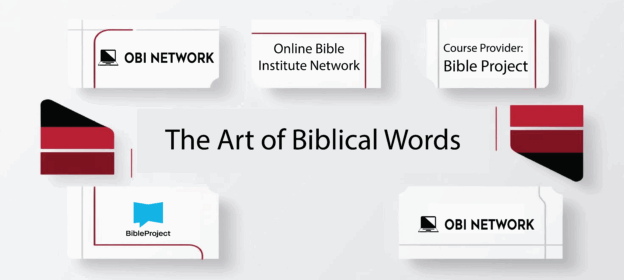The Art of Biblical Words

About Course
The Art of Biblical Words is a prerequisite course for our Online Bible Institute Graduate programs. Every student applying for our graduate program must take and complete this course.
Many key biblical words are either unfamiliar or have lost their original meaning in our
modern context. Gain the skills you need to understand these words every time you
read, and try out some of the best free tools scholars use to uncover the original
meaning of biblical words.
Even though you will access the sessions through our Online Bible Institute platform, you will watch the sessions and complete the Bible Project requirements on the Bible Project Classroom platform. You must open a free account on the Bible Project Classroom site. They will provide you with a username and password different from the one you have for the Online Bible Institute. The link below will open a new window and allow you to create an account at the Bible Project Classroom.
Sign up for the Bible Project Classroom
All of the ideas and principles conveyed by the instructor in this course are not necessarily held by the Online Bible Institute Network.
Course Content
Session 1
-
Video for Session 1
